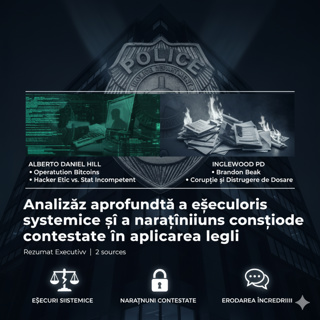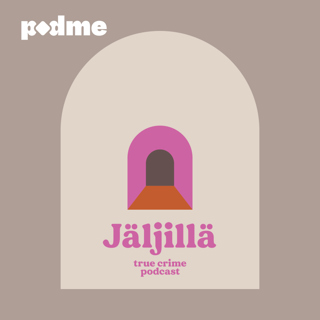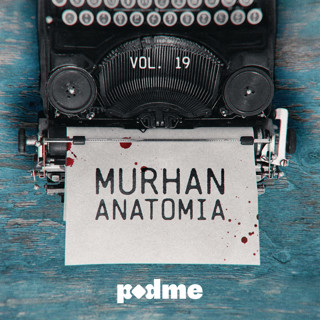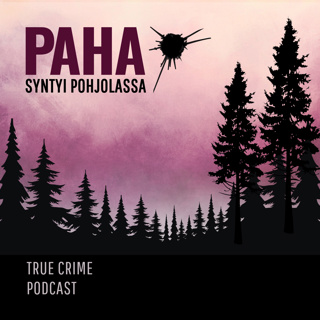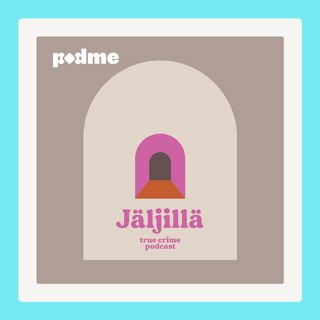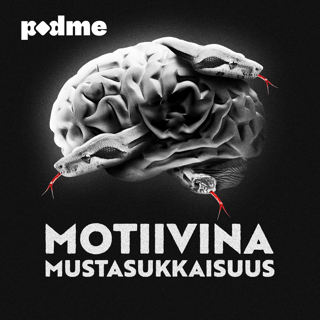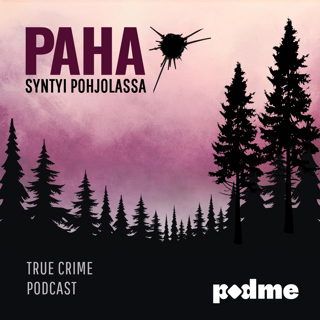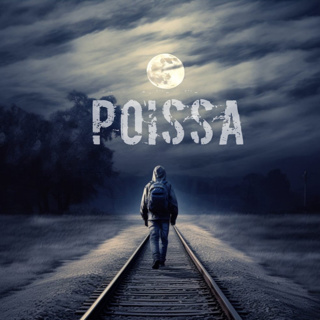
I told about the dissater3 years before happening. The Inevitable Validation: The PKI “Digital Master Key” Crisis.
3. The Predictive Value of Expert Analysis: From the DNIC Warning to the PKI CatastropheThe true value of independent, technically-grounded analysis lies in its predictive power. The same technical illiteracy that led a judge to believe I could “mentally alter evidence” is what blinded officials to the clear and present danger I warned about in 2021. The events surrounding the Dirección Nacional de Identificación Civil (DNIC) cyberattack and the subsequent national Public Key Infrastructure (PKI) crisis serve as a definitive and tragic validation of the warnings that I and other experts issued—warnings that were systematically ignored by official channels that preferred to downplay risk.In February 2021, following the DNIC cyberattack, I made several public statements on Radio Sarandí to sound the alarm. My warnings were not speculative; they were based on observable evidence and a deep understanding of the nation’s vulnerabilities. My key points were clear:Not an Isolated Incident: I stated unequivocally that the hack was “not an isolated incident” and was directly linked to the sale of stolen Ministry of Defense data on the Dark Web from the previous month.Systemic Weakness: I affirmed that Uruguay’s systems were “poor in terms of security controls” and that a lack of trained personnel meant the country was “very exposed” to attacks.Official Denial vs. Reality: I directly challenged the official narrative. While Ministry of Defense officials claimed the stolen data was “not sensitive,” I pointed out that the documents being sold online were visibly marked “confidential.” I concluded, “I get the impression that they don’t have much idea what was stolen.”Constant, Undetected Threat: I stressed that state systems were “constantly being attacked” and that, in many cases, the government was completely unaware of the breaches. My final diagnosis was blunt: Uruguay was “very bad from the point of view of security.”My warnings were tragically validated years later by a “catastrophic cyber failure”: the theft and cracking of passwords for 30,000 national ID certificates. The gravity of this breach cannot be overstated. These Public Key Infrastructure (PKI) certificates are the “absolute bedrock of digital life in Uruguay.” Under Uruguayan law, a digital signature from one of these certificates has the “exact same legal power as you signing a piece of paper with a pen.”The threat actor, who went by the name Origugu 1337, didn’t just steal data; they obtained a “digital master key” with the power to “legally impersonate 30,000 citizens.” The potential for systemic fraud is “almost beyond imagination,” giving the attacker the power to legally sell a citizen’s home, drain their bank account, or sign binding legal contracts in their name, all with the state’s official blessing. This crisis was the direct and predictable result of the “national cyber debt” I had warned about—a debt compounded by a critical shortage of at least 600 trained cybersecurity professionals.The divergence between the official tendency to downplay risk and the reality-based expert diagnosis is what allowed this disaster to unfold.The failure of the traditional narrative to grasp the scope, root cause, and potential consequences of the early warnings allowed Uruguay’s “cyber debt” to compound until a catastrophic and predictable failure was inevitable.3.1. The 2021 Warning on Radio Sarandí3.2. The Inevitable Validation: The PKI “Digital Master Key” Crisis3.3. Comparative Analysis: Official Narrative vs. Expert DiagnosisArea of AnalysisTraditional/Official Narrative (Downplaying Risk)Expert Narrative (Hill’s Perspective)Incident ScopeThe DNIC hack is a contained event; the stolen Ministry of Defense data is dismissed as “not sensitive.”The DNIC and MOD hacks are linked, proving active data exfiltration by international actors and revealing systemic exposure.
29 Syys 5min
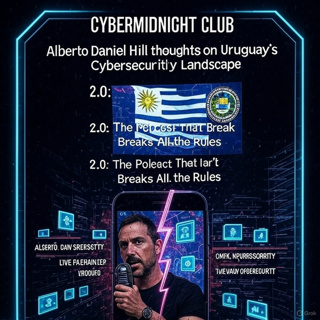
Uruguay's Cybersecurity Landscape: Alberto Daniel Hill.
The collected sources offer a comprehensive view of Uruguay's rapidly evolving, yet vulnerable, cybersecurity landscape and the systemic failures within its legal system, centered around the controversial case of ethical hacker Alberto Daniel Hill. The sources establish Uruguay as a major regional digital hub facing a surge in cyber incidents, necessitating the recent enactment of the Cybercrime Law to modernize its legal response. However, this progress is undercut by a severe skills gap and critical vulnerabilities, evidenced by a catastrophic PKI certificate breach that compromised 30,000 national digital identities. Hill's personal story—his unjust incarceration for responsible disclosure—is presented as a case study that exposes the profound disconnect between technology and an ill-equipped judiciary, a failure he now campaigns against through radical transparency in his public advocacy and highly influential social media discussions. Finally, one source details a multi-jurisdictional legal strategy involving Hill and his partner against a defamer, demonstrating how their own complex history and legal jurisdictions are being leveraged for accountability against malicious actors.https://cybermidnight.club/briefing-the-uruguayan-cybersecurity-landscape-and-the-case-of-alberto-daniel-hill/https://x.com/ADanielHill
29 Syys 29min

TRAILER: Behind the Mask: A Hacker's Journey
The sources consist primarily of a lengthy, unedited audio transcript of a conversation between individuals, including one referred to as Dexter, alongside excerpts from a related Spotify podcast series and a GitHub repository. The conversation covers extensive ground, discussing the complexities of corruption in police departments, particularly in the US and Latin America, and personal experiences with law enforcement scandals. Much of the dialogue revolves around Dexter's past involvement with Anonymous, his disillusionment due to internal conflict and ego, and his subsequent "atonement" through independent cybersecurity and anti-predator work, which is further detailed in the podcast summaries and suggested by the titles of his GitHub articles. The discussion also touches upon the ethical and legal ambiguities of hacktivism, the nature of cybersecurity work, and the psychological impact of trauma and high-risk activities.https://x.com/ADanielHill
29 Syys 1min
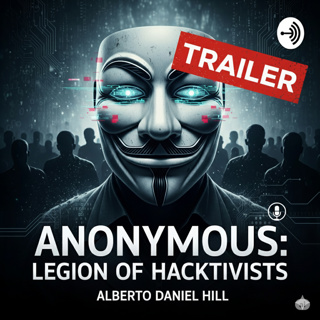
TRAILER: Anonymous: Legion of Hacktivists
The transcript excerpts provide an extensive overview of the hacking collective Anonymous, tracing its origins from the chaotic and often offensive culture of the 4chan b board and the early history of hacker pranks at MIT. The source details Anonymous's evolution from a group focused on "lulz" (laughs) and online trolling to a powerful force in hacktivism, exemplified by large-scale operations against the Church of Scientology and involvement in the Arab Spring by aiding secure communication. It covers the group's decentralized structure, their commitment to freedom of speech and anti-censorship, and the legal repercussions faced by some members, such as a year in prison for one individual involved in the Scientology attacks. Finally, the text explores related groups like LulzSec and the ethical complexities of their actions, including attacks on organizations like WikiLeaks and attempts to stop financial transactions by companies like PayPal and MasterCard.
29 Syys 1min

Sylvester Stallone, Criminal Justice, and Free Energy
The source documents contain excerpts from a long-running, unstructured audio conversation, likely a recorded social audio space, featuring multiple participants including Alberto and Amy, and later speakers such as Yuri and Zach. A major theme throughout the discussion is the nature of secrets and privacy, with participants debating whether one should have secrets, how society judges "dirty secrets," and the public trust issues arising from lies told by figures like politicians and athletes. Interwoven with this is a meta-critique of a cyber security podcast called "Cyber Midnight Club," which is praised for its authentic, raw, community-driven content but criticized for its lack of mainstream discoverability and high-volume, low-production approach. The conversation shifts dramatically when Yuri shares a deeply personal and traumatic account of a police encounter involving a misdemeanor drug charge (mushrooms) and an escalating incident resulting in multiple felony charges, a brain injury, and the loss of his driving license and passport.
28 Syys 26min
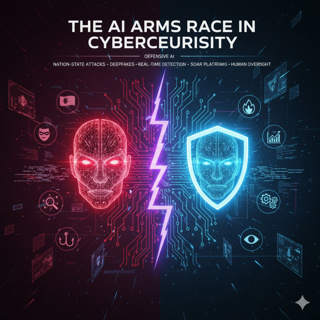
AI in Cyber Threat Hunting and Defense
The collection of sources provides a comprehensive overview of the AI arms race in cybersecurity, detailing how artificial intelligence is leveraged for both offensive and defensive purposes. On the offensive side, sources emphasize that malicious actors, including nation-state groups and cybercriminals, are increasingly using generative AI to create highly sophisticated attacks, such as personalized phishing emails, autonomous polymorphic malware, and convincing deepfakes that lead to massive financial fraud. Conversely, the sources highlight the critical role of defensive AI in countering these threats through methods like real-time anomaly detection, behavioral analytics, and Security Orchestration, Automation, and Response (SOAR) platforms that automate threat detection and incident response. Furthermore, several texts stress the importance of robust AI governance, adversarial training, and human oversight to mitigate inherent technical and operational risks, such as jailbreak vulnerabilities and the production of unreliable outputs, ensuring that AI remains an asset in the evolving security landscape.
28 Syys 7min
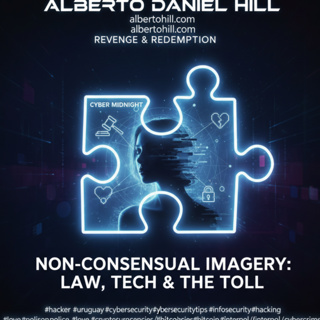
Image-Based Sexual Abuse: Global Analysis and Legal Responses
These sources collectively provide a comprehensive overview of the issue of non-consensual intimate imagery, often termed revenge porn, focusing on its legal, psychological, and technological dimensions. The materials explain that victims frequently suffer severe mental health consequences, including symptoms consistent with PTSD, anxiety, and depression, often leading to a loss of trust and self-esteem. From a legal standpoint, the sources confirm that all 50 U.S. states now have criminal laws addressing nonconsensual distribution, although a Reddit thread suggests that obtaining a conviction without concrete evidence of dissemination can be extremely difficult. Furthermore, the documents detail the global legislative response to this problem, noting criminalization efforts in countries like Canada, Australia, and Spain, and highlight the use of technological solutions like StopNCII.org to prevent the online spread of intimate images via digital fingerprinting. Finally, the texts discuss the disproportionate impact of this abuse on younger adults, women, and marginalized groups, emphasizing that it functions as a tool of gendered violence.-------------------Alberto Daniel Hill https://albertohill.comhttps://cybermidnight.club#hacker #uruguay #cybersecurity #cybersecuritytips #infosecurity #hacking #police #prison #love #cryptocurrencies #bitcoin #interpol #finland #cybercrime
28 Syys 6min
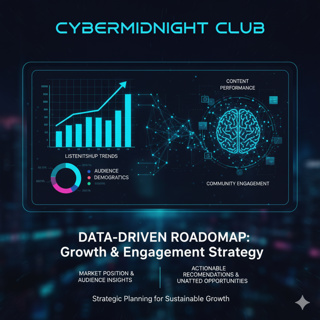
The Anti-Podcast Empire: An In-Depth Analysis of the Cybermidnight Club Phenomenon
Introduction: The Prolific Ghost of PodcastingIn the modern media landscape, the Cybermidnight Club presents a compelling paradox: a media entity boasting a vast library of nearly 600 episodes and a relentless daily output, yet it remains a virtual ghost on traditional podcast charts. It is a prolific phantom, generating a constant stream of content that cultivates a fiercely loyal community while eschewing conventional metrics of success. This analysis will deconstruct the enigmatic success and strategic challenges of this unique "anti-podcast," a model built not on polished production but on a philosophy of raw, iterative creation.At the center of this universe is its architect, host, and "main character," Alberto Daniel Hill. His personal story is not merely a backstory; it is the foundational narrative upon which the entire media brand is constructed.The objective of this document is to analyze the unconventional strategy, the radically efficient content engine, and the dedicated community that define the Cybermidnight Club. By dissecting its operations through the lens of a specific creative philosophy, we will culminate in an evaluation of its greatest strategic dilemma. We begin with the foundational element that informs every aspect of the brand: the personal history and mindset of its creator.--------------------------------------------------------------------------------1. The Architect and The Narrative: Alberto Daniel HillTo understand the Cybermidnight Club, one must first recognize that it is not just a podcast but a platform for its central figure, whose entire operation is the living embodiment of the "hacker mindset." This mindset—defined by a "deep curiosity" into how systems work, a "healthy dose of skepticism" towards assumptions, and an ability to "embrace failure as an opportunity to learn"—is the analytical key to the entire brand. His personal history is the foundational pillar that provides its narrative gravity.Hill is a cybersecurity expert from Uruguay whose personal narrative is inextricably linked to his content. He was reportedly the first person in his country to be imprisoned for a computer crime—a charge he vehemently denies. He has weaponized this personal trauma, transforming it from a liability into the brand's core strategic asset: unimpeachable authenticity. He is not an academic discussing abstract concepts but a survivor critiquing the very systems he has personally confronted.This transforms Hill from a simple host into the "main character" of the media universe he has built—a key strategy in the modern creator economy where a life story becomes the central IP. His personal crusade against the systems and institutions he critiques forms the unifying theme that runs through every broadcast. This fusion of personal mission and professional expertise creates a compelling brand identity, setting the stage for the unconventional, mindset-driven method he uses to broadcast it.https://creators.spotify.com/pod/profile/darkwebtoday/
28 Syys 7min
